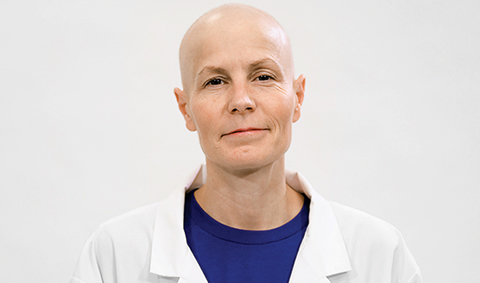Ovarian cancer claimed the life of 45-year-old Mona Louise Gauthier (PhD 2002) in December, but not before the cancer researcher had helped expose how the disease manifests.
As a principal investigator at Princess Margaret Cancer Centre’s Campbell Family Institute for Cancer Research, where she worked side by side with her husband, clinical breast pathologist Dr. Hal Berman, Gauthier co-led a 2013 study revealing estrogen’s role in predisposing women with a specific gene mutation to breast and ovarian cancers. Her relentless mission to understand and eradicate the inherited forms of these diseases also unfolded at her lab at U of T’s Department of Medical Biophysics, where she studied the biology of how breast cancer begins.
“She rigorously campaigned against the scourge of these cancers so future generations might not have to suffer her own fate,” says U of T professor Dr. Tak Mak, co-director of the Princess Margaret institute and Gauthier’s co-researcher on the 2013 study. Gauthier’s cancer battle was always as much personal as professional, as she had inherited the mutated cancer-predisposing gene from her mother, who died of breast cancer at 51. During her four years fighting ovarian cancer, she helped establish OVCAPeers, a support network for Greater Toronto Area women living with the disease. At the 2011 Weekend to End Women’s Cancers walk, Gauthier spoke eloquently about the power of facing the disease together, saying, “Survivorship is sharing the uncertainty, collectively.”






